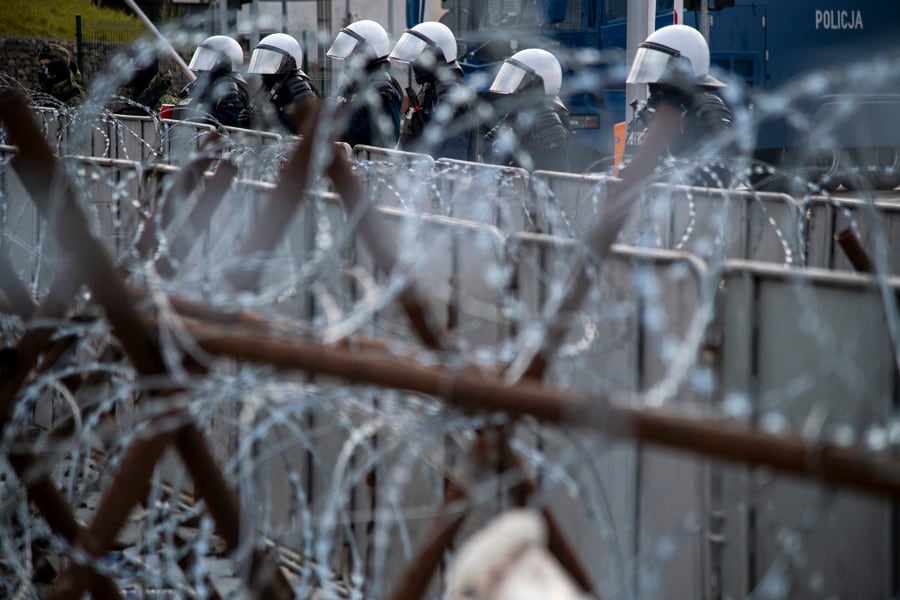
How fake news on Facebook helped fuel a border crisis in Europe
Facebook, now officially known as Meta after a corporate name change, said it prohibited material that facilitates or promotes human smuggling and has dedicated teams to monitor and detect material related to the crisis
 Security officials stand watch in Poland as seen through razor wire from the border crossing at Bruzgi, Belarus on Monday, Nov. 22, 2021. The tense standoff between Poland and Belarus over thousands of asylum seekers appeared to ease in recent days. (James Hill/The New York Times)
Security officials stand watch in Poland as seen through razor wire from the border crossing at Bruzgi, Belarus on Monday, Nov. 22, 2021. The tense standoff between Poland and Belarus over thousands of asylum seekers appeared to ease in recent days. (James Hill/The New York Times)
BRUZGI, Belarus — After more than a week sleeping in a frigid encampment on the border between Belarus and Poland, and an abortive foray across the frontier repelled by pepper spray and police batons, Mohammad Faraj gave up this month and retreated to a warm hotel in Minsk, the capital of Belarus.
Soon after, however, he watched with surprise and excitement a video report on Facebook claiming that Poland was about to open its border and urging all those who wanted to enter the European Union to gather at a gas station near the encampment that the migrants had nicknamed “the jungle.”
Faraj, a 35-year-old ethnic Kurd from Iraq, rushed back to the squalid camp he had just left, traveling 190 miles from Minsk to the gas station just in time for the opening of the border in early November that he had heard about on Facebook.
The Polish border, of course, remained tightly shut, and Faraj spent the next 10 days back in what he described as “like something out of a horror movie.”
The EU, offering robust support to Poland’s hard-line stand against migrants, has blamed the traumas of recent weeks on its eastern border on the authoritarian leader of Belarus, Alexander Lukashenko.
©2019 New York Times News Service







